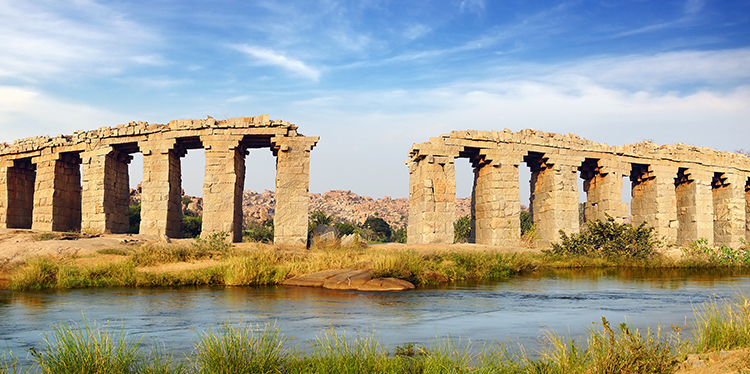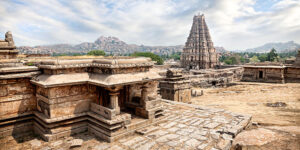There are two dominant ideas of India, at least, playing out as the great Secular–Communal divide in the theater of India’s political battleground – its own modern day Kurukshetra.
On the one hand is the idea that the entire past civilizational heritage of India, its spirituality, its religion, culture and traditional wisdom is an unnecessary burden, irrelevant and even detrimental to India’s future. A natural corollary of this idea is the notion that India is better off forgetting its past, and must focus on modernizing and westernizing as quickly as possible. In fact, deliberately engineering this “forgetting of the past” must then become a critical project, as it has been, beginning from India’s colonial masters and continuing to this day through the policies and programs of the Congress Party. A great pillar of this project, is the dis-connection of the people from their language – Sanskrit. The more alienated the people become from their own culture and heritage, the more they learn to look at their own past, their parents and ancestors with indifference or even disdain. Recently, Ms. Sonia Gandhi appeared on TV in India, making an ironic appeal to the people that what was at stake in the elections of 2014 is the very idea of India, its “Bharatiyata”.
On the other hand is the idea that India’s future cannot be de-linked so easily from her civilizational past, and her future must be based on a meaningful recovery of the wisdom of her culture, traditions and heritage. The recognition and awareness that such a meaningful recovery of India’s civilizational past, its “Dharma” is necessary for her own self-respect and sense of identity and destiny, is the alternate pole in India’s political and ideological spectrum. Is this recognition increasing? Are more and more Indians, coming around to the view that a thorough and proper examination of India’s past is a necessary part of architecting India’s future? Is the increase in this awareness at the heart of the growing acceptance of the “Bharatiya” Janata Party? Or is the acceptance of the BJP and its allies in 2014, merely a reaction i.e. a tactical swing away from the incompetence and corruption of the UPA I and II governments?
Just as the forgetting of India’s past has been “engineered”, the new Government must “engineer” or set in motion such programs and projects that would facilitate the “remembering” of India’s culture, wisdom and the civilizational past among its citizenry. Merely focusing on development and good governance, which has been the pre-dominant plank of the Prime Ministerial candidate of the BJP, will not bring balance in the playing field, over the long term. In the end, each person and each family has to make a personal choice as to the relevance and value of their own civilizational wisdom and heritage. This would truly uphold the principle of Secularism fully – but such a choice has to be based on a careful assessment and evaluation of that heritage, not a wholesale ignorance of it. The Congress and the UPA, has been for long on the side of promoting ignorance; the BJP and its allies must promote knowledge and understanding – So the study of India’s civilization and culture in the schools, colleges and the institutions of higher learning, must become a vital component of India’s recovery and progress.



